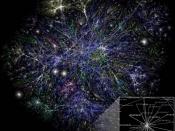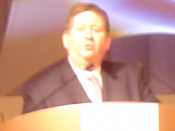After reading pg 63 in the book, Computing Ethics, and researching the internet. Michael Winter notes that, as a group, the information professions have only recently developed such distinctly modern characteristics of the professions as university training, professional associations, licensing procedures, and codes of ethics.(1) Even more than librarianship, the computing professions can be seen as what Winter and others would characterize as "emerging" professions. Abbott traces the beginnings of the computing profession to World War II.(2) Others, too, have noted how quickly computing "emerged" as a field and as a profession: "as soon as computer technology was developed, it was recognized as marketable, useful for individuals (at the corporate level) and vital for the military. Overnight the elements of a profession were in place."(3)
One could also note the apparent vulnerability of some segments of each group to having their services outsourced by their parent organization,(4) and difficulties in establishing standards for professional recognition.(5)
Computing professionals, who are also faced with increasing specialization within the profession, have traditionally based their identity in the disciplines of mathematics and engineering.(6) A 1989 task force of the Association for Computing Machinery (now more commonly known simply as ACM) declared that:
Computing sits at the crossroads among the central processes of applied mathematics, science, and engineering. The three processes are of equal-and fundamental-importance in the discipline, which is a unique blend of interaction among theory, abstraction, and design.(7)
Since 1989, however, networking and communications technologies have become increasingly integrated into all aspects of contemporary business and professional life, and the demand for skilled information technologists has grown exponentially. Computing has become much less a "back office" operation, and the backgrounds and experiences of those working in the field have become much more heterogeneous. In business, government, and education, many people have attained responsible...


